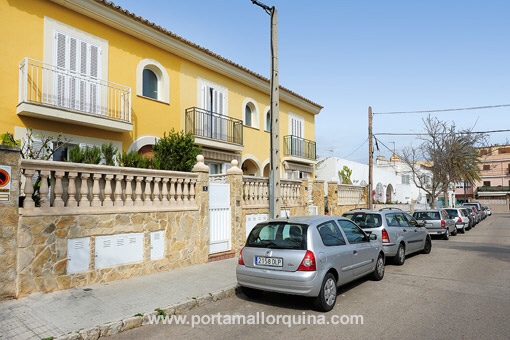Spain’s Residential Property Ownership Act applies to all freehold apartments, business premises, garages, terrace houses and residential complexes that have commonly owned property (e.g. green areas, stairways, etc.). The Act, which dates back to the 1960s, has now been updated with Reform Act 8/2013, particularly with regard to social and energy efficiency-related requirements. This now makes it far easier to obtain licences for the retrofitting of lifts and barrier-free access for people with disabilities and residents aged over 70.

The Spanish Residential Property Ownership Act applies not only to freehold apartments but also to terrace houses such as the one in Coll den Rabassa, shown above.
Owner associations’ ability to act has also been improved. For example, unanimous decisions are no longer required for certain amendments to the Articles of Association. The retrofitting of solar and other environmental systems has also been made easier.
Buyers liable for predecessor’s debts
Before the purchase of a property covered by the Spanish Residential Property Ownership Act, the buyer should be sure to clarify whether the vendor has settled all outstanding debts to the owners’ association. This is because, as of now, he will be liable for any such outstanding debts for a period of up to 3 years prior to the purchase. The priority given to the settlement of outstanding property service charges has also been improved. The owners’ association will now be serviced ahead of numerous other creditors. This means that owners’ association claims will also take priority over possible mortgage demands from banks.
Establishment of reserve fund now statutory
The Act also prescribes the establishment of a reserve fund – known as the “Reserva”. Every year each owner must pay into this fund at least 5% of the owners’ association’s last ordinary budget for necessary maintenance and repair work. If the costs exceed the amount in the fund, the extra costs are to be proportionately allocated to the owners.
Sufferance of maintenance measures
If the owners’ association deems it necessary to undertake repairs or maintenance work, the owner must allow it to be carried out at his business premises or home. This is intended to ensure that individual owners cannot block measures for the preservation of the building.
Even if these regulations sound very rigid, the Act as a whole has been made more flexible, and particularly gives consideration to the changing social and energy efficiency-related demands of modern society.
This article is intended purely as general information and does not purport to represent legal advice.
